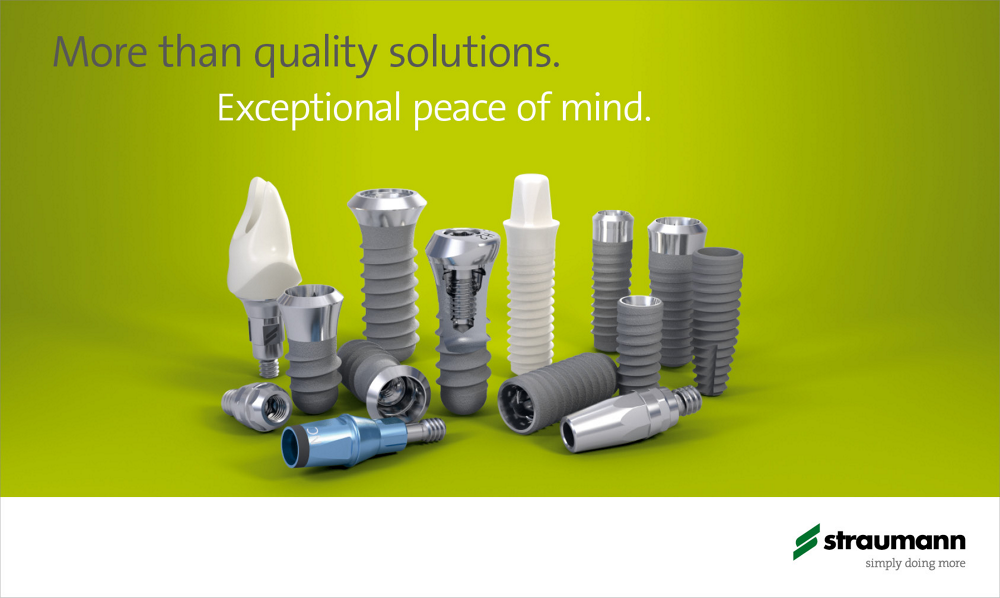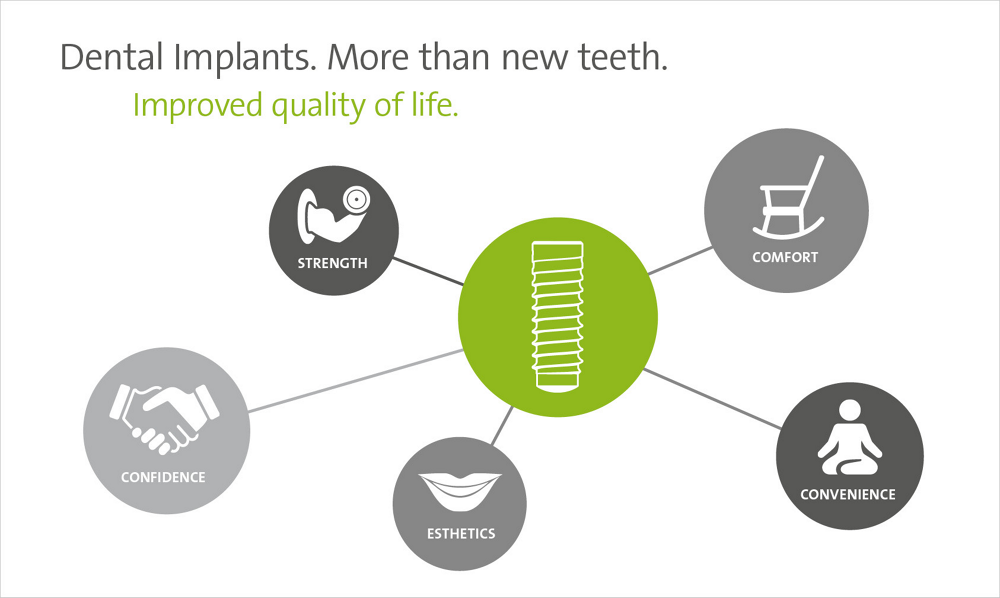Dental Implants
What is a dental implant?
Dental implants enable the replacement of missing teeth, whilst giving confidence that they will come on on loose or for out when eating tough foods. Implants look and feel like natural teeth, they're very durable and will last for many years if food oral hygiene is maintained.
A dental implant is an artificial tooth root, usually made from titania that is placed in at your. A crowd breaches then fitted on top to replace the missing tooth. Several implants can strongly secure a denture in place and give you the confidence to eat what you want without worrying about them coming loose.
Patients must have healthy gums and enough jawbone to support the implants.

Can implants always be used to replace missing teeth?
Patients must have healthy gums and enough jawbone to support the implants.
Do dental implants last for life?
Once a dental implant is reintegrated into the jawbone, studies have shown a survival rate in excess of 90% after 15 years. However, studies have also shown that this is reliant on the high standard of daily cleaning regular observation and maintenance with a dental professional.
How difficult are teeth to clean after implants?
No. Cleaning the teeth attached to the implants are no more difficult to clean than your normal teeth. There may be areas which are more difficult to reach, but your dentist will show you different methods for best cleaning there. Regular tips the dental hygienist are also recommended, but again, your dentist should advise you on this. Good oral hygiene is vital after implants have been fitted. As well as avoiding decay and gum diseases, this will prolong the success in life of the implant.
Can I take the replacement teeth out after they've been fitted to the implants?
Most artificial teeth attached to implants can only be removed by your dentist. Complete dentures of the only exception to this.
How do I care for my implant?
Good oral hygiene is vital after implants have been fitted. As well as avoiding decay and gum disease, this will prolong the success in life of the implant. Your dentist or dental hygienist will be able to advise a suitable home care regime to ensure that the good oral hygiene is maintained.
How are dental implants fitted?
The procedure of having dental implants is performed over a period of several months. Initially the implant is placed in the jawbone and left to heal over a period of 3 to 6 months. During this time the implant integrated with the surrounding bone tissue providing a solid support for the replacement tooth.
Once the jaw has healed, repression is then taken of the mouth and sent to the dental technician, providing the exact size and shape for the replacement tooth. The technician will then build a bespoke replacement (crown or bridge) which will blend in naturally with the other teeth
Once a replacement is is ready, it will be tried in place and small adjustments made to ensure you can bite comfortably. Once you you and your dentist are happy, the replacement tooth is then secured in place.
Is the process painful?
While placing the implant in the jaw, a local anaesthetic can be used. You will not feel pain at the time, but may feel some discomfort for the following week. This is usually due to having stitches and the normal healing process.
How long does treatment take?
After the implant is inserted, you need to wait 3 to 6 months for the jaw to heal. Once healed, an impression is then taken of the mouth and given to a dental technician, who will build a bespoke replacement tooth to the required size, shape and colour. When ready, the replacement tooth can be tested before being securely fitted.

Do I have to have an implant for each missing tooth?
A single implant can be used if you are having a single tooth replaced. However, each implant can usually support two teeth, so 5 to 6 implants are usually used to replace all the teeth in one jawbone. Your dentist will to look at your individual requirements and advise you further.
What happens if the implant does not bond with the bone?
This happens very rarely. If the implant becomes loose during or just after the healing period, then it can be easily removed and heals in the normal way. Once the jawbone has completely healed another implant can be placed there.
